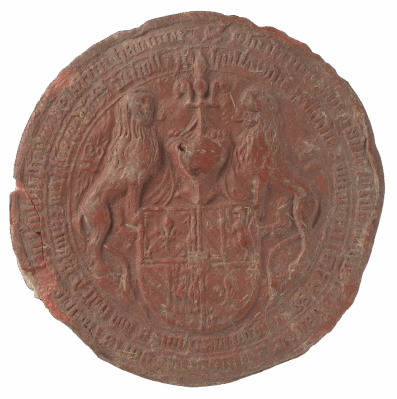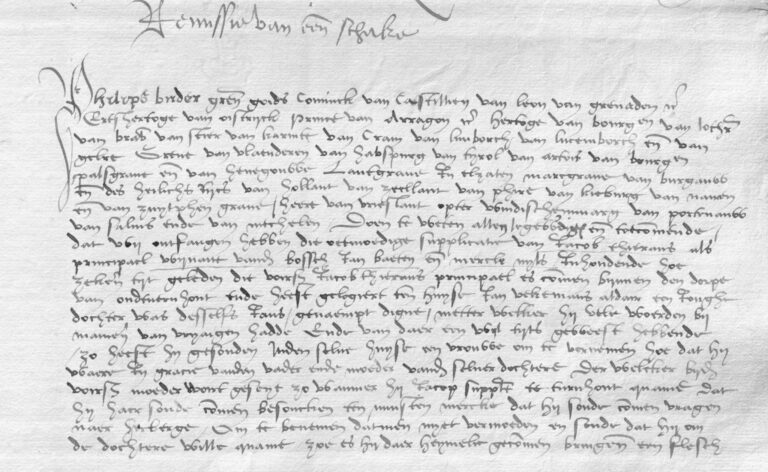This pardon letter for four Brabanders from the Turnhout area tells a love story.
When Jacob Thierans was staying at Jan Vekemans’ inn in Oud-Turnhout, he developed a crush on Digne, Jan’s daughter. He had a firm hold on her, because after returning home, he tried to inquire if he was “in grace of the father and the mother”. The mother allowed Jacob to visit her daughter, but apparently it had to be done discreetly. Jacob and his mate arrived in Oud-Turnhout earlier and hid in a nearby barn at the mother’s request. Only when everyone had gone to bed were they let in. The wine Jacob had brought in his bag was spiced and warmed up. They had a pleasant evening together.
But Jacob wanted more and asked Digne if there was no location where they could meet secretly several times a week, without her mother’s watchful eye. Digne knew what to do about that and more clandestine visits followed, with Jacob exploring the possibility of marriage with Digne. Digne suggested Jacob to send two men to see her father, but he dared not do so for shame of his shabby state and fear of ridicule. Rather, he wanted Digne to go with him, but then again she did not want that. There was also a well-bred ‘companion’ interested in her, and that could cause problems back at home. Very well then, Jacob agreed to send two men to her father. Once home, however, he changed his mind. In its place, he sent a letter and a sugar loaf.
The pardon letter remains (deliberately?) vague about the sequel. Could Jacob no longer contain himself? Was he under pressure from potential hijackers on the coast? In any case, he changed course. On the Thursday before Lent, he went to the inn with Wynant vanden Bossche, Jan Baten and Merck Nijts. Together with his companions, he ‘cheated’ Digne, put her on a wagon and left with her northwards. When Digne made it clear to him that her father and mother would come after him with the arm of the law, Jacob became worried. He left Digne with the mayor of Helvoirt, “without being violated or being done wrong”. Digne was not vindictive, but indicated, according to Jacob, that she would give him time to keep trying. She would wait for him. No complaint was filed against Jacob.
Six weeks after the incident, however, Jan Baten, one of Jacob’s companions, was arrested in Weelde by the bailiffs of Turnhout for his part in the strike. Unjustly, according to a group of women, and they freed Jan. Thereupon, the others involved decided to run away as well. They asked for a pardon for the strike. This was granted to them in July 1505.
The transcription of this letter was made by volunteer Els Lenaerts, many thanks!

